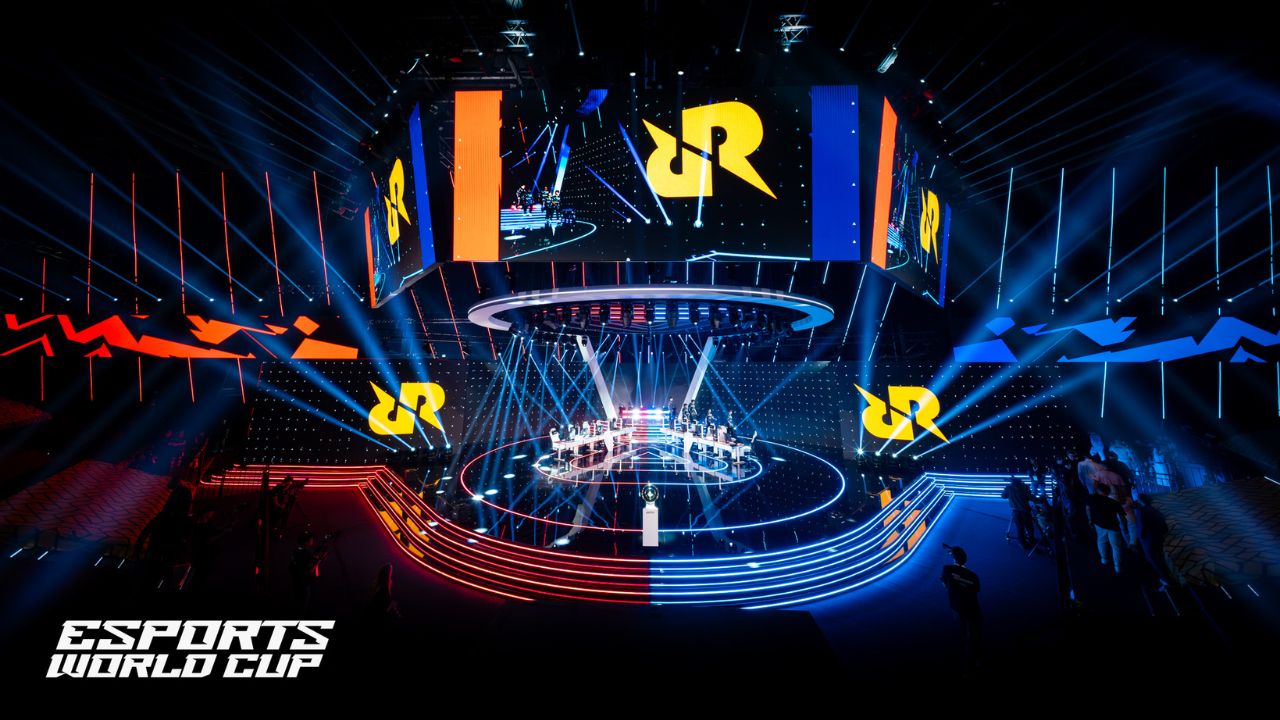In the heart of Riyadh this summer, a seismic shift is taking place—not just in competitive gaming, but in how the world views esports, youth culture, and even Saudi Arabia itself. The Esports World Cup (EWC), already hailed as the world’s largest esports event by prize pool, is more than a spectacle—it’s a statement. At the core of this ambitious project lies a vision not only to entertain, but to redefine Saudi Arabia’s place on the global map of digital innovation, entertainment, and talent development.
For many, Saudi Arabia’s Vision 2030 may have conjured images of tourism, renewable energy, and megacities like NEOM. Few would have predicted that competitive gaming—once relegated to niche corners of the internet—would become one of its most strategic pillars. But as Hans Jagnow, Team and Player Relations lead at the Esports World Cup Foundation (EWCF), tells us, this isn’t a passing trend. Esports, with over 640 million fans worldwide and a culture deeply rooted in digital nativity, is the entertainment of a generation. And Saudi Arabia, with a youth population where 68% identify as gamers, is leaning into that future with unprecedented commitment.
From record-breaking prize pools to grassroots talent programs, the EWC is positioning itself as more than just a tournament—it’s a launchpad for global ambitions. This conversation with Jagnow dives deep into how the EWC and the EWCF are not only shaping the competitive landscape of gaming but also acting as catalysts for economic growth, digital transformation, and global perception shifts for the Kingdom.
As the lights shine brighter in Riyadh, and the biggest names in esports gather to compete, one thing becomes clear: this is not just Saudi Arabia playing catch-up. It’s Saudi Arabia declaring it’s ready to lead.
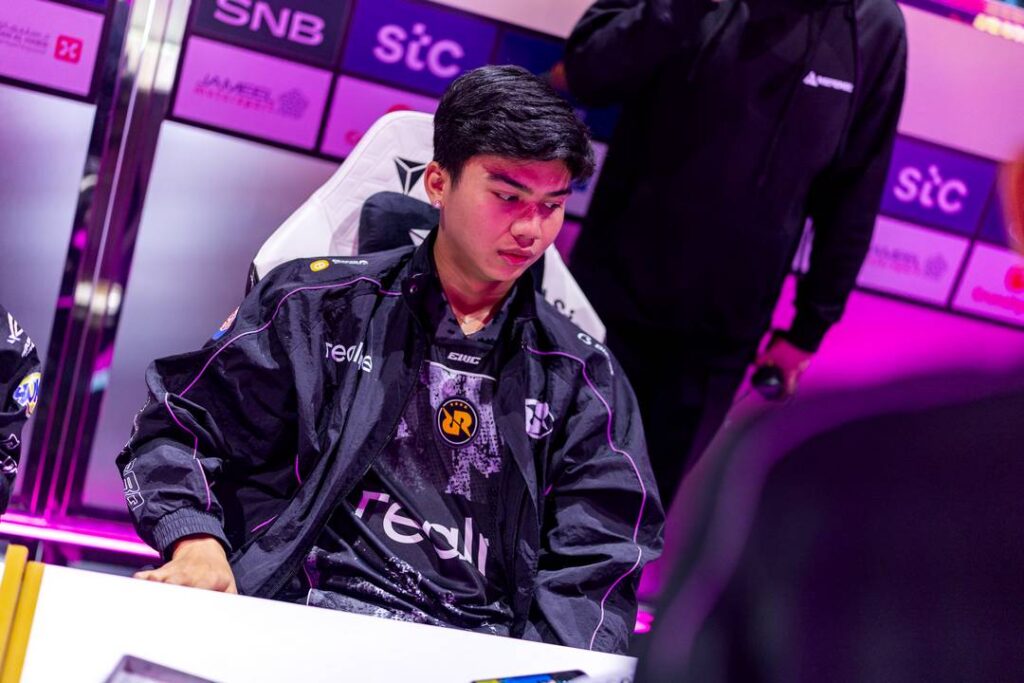
Esports as a Strategic National Investment
Why esports? It’s a question that echoes across both traditional sports arenas and political think tanks. As governments worldwide explore soft power avenues and next-generation industries, Saudi Arabia has made a bold—and to some, unexpected—bet. For the Esports World Cup Foundation (EWCF), the answer is rooted in data and generational opportunity.
“Esports is one of the world’s fastest growing and most in-demand forms of entertainment for a digital generation,” Jagnow explains. With more than 3.4 billion gamers globally and 640 million dedicated esports fans, the potential reach is staggering. Unlike other entertainment sectors that face saturation or generational gaps, esports speaks directly to the digital-first youth, whose cultural lives are shaped online as much as offline.
This is also why esports isn’t just an investment in entertainment—it’s a vehicle for influence. “The Kingdom is actively positioning itself as a global leader in the esports and gaming industry,” Jagnow says. Hosting the EWC is not simply a matter of prestige; it’s part of a coordinated national strategy. Whether through high-stakes tournaments, partnerships with publishers like Riot Games and Activision Blizzard, or support for local gaming communities, the goal is clear: build a globally competitive esports ecosystem from the ground up.
But unlike the early esports booms in Korea or North America, Saudi Arabia is leveraging its momentum with deep institutional backing. With Vision 2030 as a blueprint, esports has become both a cultural and economic lever—one that aligns with the Kingdom’s broader goals of youth empowerment, diversification, and international visibility.
And in that sense, EWC is not just a championship—it’s a keystone.
Check out our Editor’s Choice: How Southeast Asia Became a Powerhouse in Mobile Esports
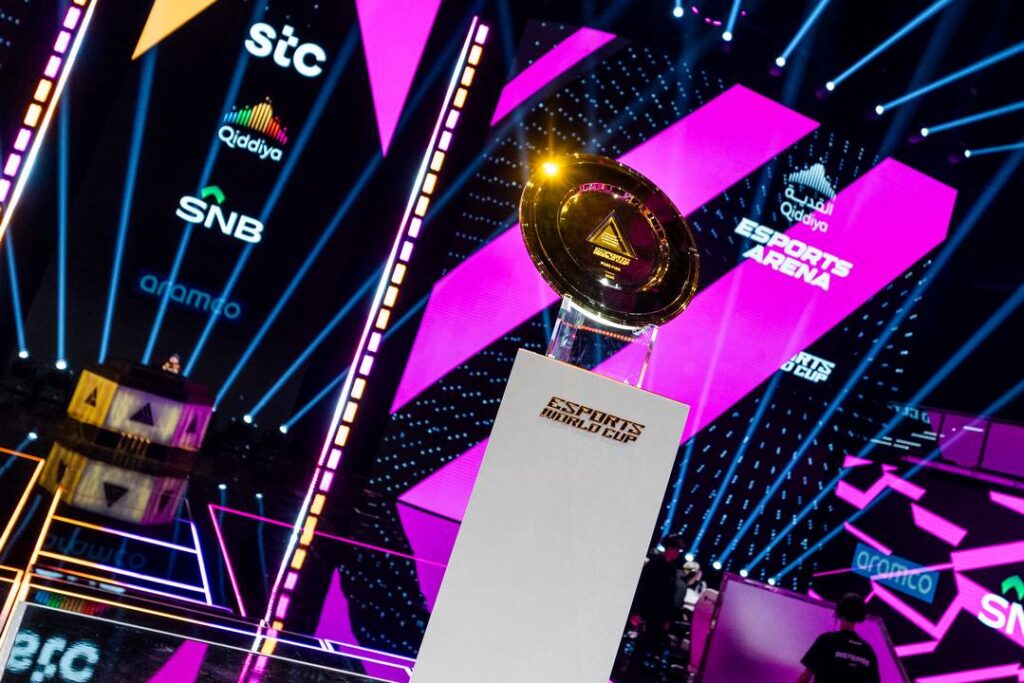
Turning Vision into Reality: The Role of EWC and EWCF
Ambition without execution is merely a dream. For Saudi Arabia, Vision 2030 laid out the dream—a nation transformed through diversification, innovation, and youth empowerment. The Esports World Cup (EWC) and its founding organization, the Esports World Cup Foundation (EWCF), represent the machinery behind that transformation, particularly in the realm of digital entertainment and esports.
At the center of it all is the EWC itself—a monumental event that brings together the world’s top-tier esports talent, competitive titles, and global fanbases under one banner. But for Hans Jagnow, the tournament is only the most visible tip of a much larger, coordinated effort.
“The EWC provides life-changing opportunities to the competitors,” Jagnow says, emphasizing not just prize pools but visibility, growth, and legitimacy. When elite players from over 100 countries gather in Riyadh to compete on a global stage, they’re not just chasing titles—they’re helping position Saudi Arabia as a new epicenter for esports excellence. It’s a symbolic and practical shift: where esports glory was once concentrated in Seoul, Los Angeles, or Shanghai, Riyadh now joins that league.
Supporting this flagship event is the broader mission of the EWCF. Unlike traditional tournament organizers that often focus only on seasonal events, the Foundation’s role is structural and long-term. “Our responsibility is sustainably growing esports on a global scale,” Jagnow affirms.
That sustainability begins with investment—real, large-scale investment. In 2025 alone, the EWC prize pool exceeds $70 million, a figure that dwarfs most international competitions, including many in traditional sports. But it doesn’t stop at the top. The EWCF’s Club Support Program allocates $20 million to help esports organizations expand into new games, build fan engagement, and stabilize their operations amid an uncertain global esports market. This kind of financial backing—targeted, strategic, and recurring—makes the difference between momentary success and lasting impact.
Equally crucial is EWCF’s commitment to publisher partnerships. Through long-term agreements with giants like Riot Games, EA, and Activision Blizzard, the foundation is ensuring that esports ecosystems are co-developed—not fragmented. These partnerships give players and clubs predictable calendars, greater institutional support, and the sense of permanence the esports industry has long needed.
All of this serves a dual purpose. First, it brings structure to a maturing industry that has often been plagued by volatility and short-termism. Second, and perhaps more importantly, it anchors Saudi Arabia’s relevance in that global ecosystem—not just as a host, but as a builder.
The alignment of EWC and EWCF with Vision 2030 isn’t a surface-level branding exercise. It’s a deep integration of policy, culture, and infrastructure. Esports has become a canvas on which the Kingdom paints its future ambitions—fast, bold, and digitally fluent. With the EWC as the face and the EWCF as the engine, Saudi Arabia is not merely participating in the global esports boom. It is setting its own terms.
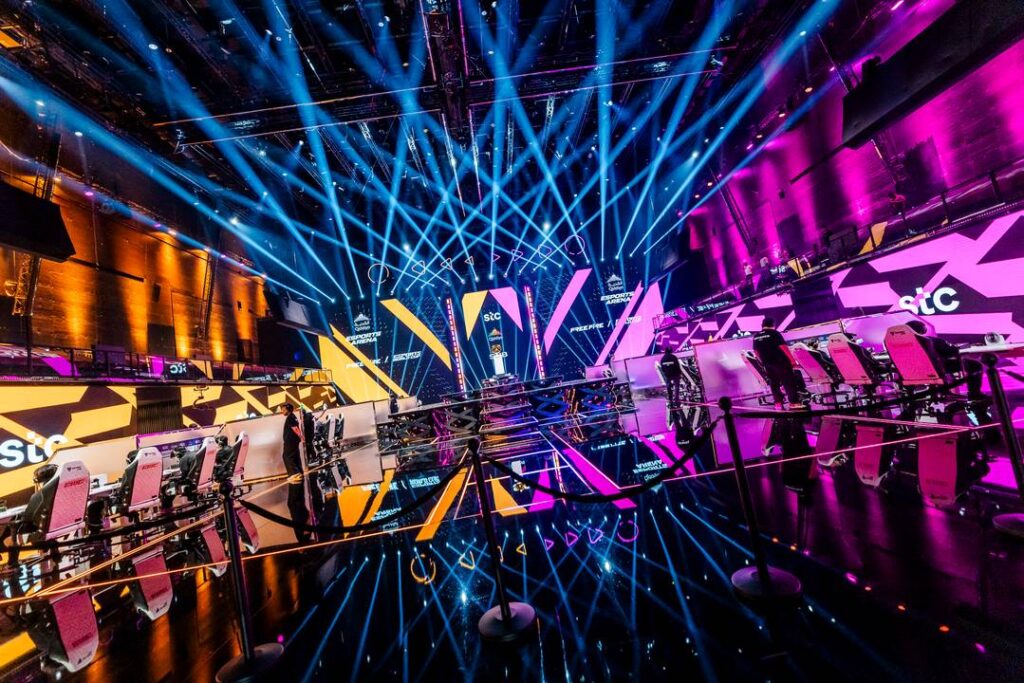
Building Champions at Home: Saudi Arabia’s Long-Term Talent Strategy
As the Esports World Cup continues to dominate headlines with its massive prize pools and international participation, a critical question arises: can Saudi Arabia also produce world-class players who can compete—and win—on this global stage?
Hans Jagnow doesn’t shy away from this challenge. “There’s an incredible foundation of gamers and esports enthusiasts to build off in Saudi Arabia,” he says. And the numbers support that optimism. With 76% of the population under the age of 35 and 68% identifying as gamers, Saudi Arabia isn’t short on potential—it’s overflowing with it.
But raw potential isn’t enough. Building world-class players requires infrastructure, mentorship, and opportunities to compete at the highest level. That’s where the Esports World Cup Foundation (EWCF), alongside the Saudi Esports Federation, steps in with targeted initiatives that focus on long-term development, not just short-term glory.
One such initiative is the EWC Festival Stars program, a pioneering effort to empower aspiring professionals—not just players, but also content creators, analysts, cosplayers, and other esports-adjacent talents. This broad approach acknowledges that today’s esports ecosystem is more than just the competition. It’s about storytelling, community, and culture—areas where Saudi youth are already deeply engaged online.
Still, the core mission remains clear: elevate local talent to the world stage. To do that, EWCF is investing in grassroots programs and training initiatives. These include local tournaments, coaching academies, and international exchange opportunities that expose Saudi players to global best practices. This mirrors the developmental pipelines seen in traditional sports—where young athletes are scouted, nurtured, and guided over years.
And the motivation goes beyond prestige. Saudi Arabia understands that cultivating local champions can ignite a national esports culture—one that isn’t just about hosting events, but about building heroes. MSdossary, the Saudi FIFA champion, is a perfect example of this impact. His success gave aspiring players a role model. The goal now is to create not just one MSdossary, but dozens more across different titles.
Jagnow is confident this is achievable. “With these investments into both esports and the development of players here in Saudi Arabia, we’re helping build a strong foundation of skilled players that can compete at a world-class level,” he explains.
What makes this effort distinct is the holistic ecosystem being developed around the players. Training isn’t limited to mechanical skills. It includes media training, performance psychology, branding strategies, and digital literacy—all essential in today’s esports era, where success is as much about persona as it is about performance.
This approach stands in contrast to many traditional esports nations where talent often rises in spite of the system, not because of it. Saudi Arabia is trying to reverse that narrative—by designing a system where local players don’t have to leave their country for world-class training or international exposure. The stage is being built at home.
In doing so, the Kingdom is not just investing in games. It’s investing in people—and betting that its next global esports champion is already in the crowd, controller in hand, ready for their moment.

Redefining Perception: EWC and the Soft Power of Esports
In recent years, Saudi Arabia has made headlines for its ambitious efforts to rebrand itself on the global stage—moving beyond oil into tourism, culture, sports, and now, esports. The Esports World Cup (EWC) plays a pivotal role in this narrative, especially among younger, digitally native audiences around the world. For Hans Jagnow, this is not a coincidence—it’s a calculated and visionary strategy.
“The goal of the Esports World Cup is to set a new benchmark for competitive gaming while offering life-changing opportunities to players, clubs, game developers, and fans,” he says. But beneath that competitive exterior lies something deeper: a transformation in how people, especially youth, perceive Saudi Arabia.
The EWC isn’t just about games. It’s about global cultural engagement. In its 2025 edition alone, the tournament features over 2,000 players, 200 clubs, and participants from more than 100 countries. That level of diversity sends a powerful message—that Riyadh is not just a host city, but a crossroads for global esports culture.
What’s more, fans are responding. Jagnow highlights an increase in international attendance, particularly from regions like China, Southeast Asia, and Latin America—regions that have long-standing esports communities and are now seeing Riyadh as a destination. For many international fans, this may be their first real cultural interaction with Saudi Arabia. The Kingdom is making that first impression count—with hospitality, infrastructure, and a level of production on par with the world’s most prestigious sporting events.
This soft power strategy mirrors the diplomatic impact of global sporting events like the Olympics or the World Cup. Just as Japan leveraged the 2020 Olympics to spotlight its tech and culture, or Qatar used the 2022 FIFA World Cup to reposition itself globally, Saudi Arabia is using the EWC to create a new narrative—one that speaks directly to the next generation.
That narrative is not built on traditional diplomacy or legacy media, but through Twitch streams, TikTok clips, and in-game hero moments. In esports, identity is built online, and the EWC is ensuring Saudi Arabia is present in those spaces—not as an outsider, but as a central figure.
And it’s working. “The response from the global esports community has already been overwhelmingly positive,” Jagnow notes. The high-level production, massive prize pool, and inclusivity of different titles and regions signal that this is not a one-off event. It’s a new anchor in the global esports calendar.
Crucially, this isn’t about sanitizing the country’s image or mimicking Western models. It’s about offering something authentically different—an esports experience rooted in local pride but global in reach. With EWC as its flagship, Saudi Arabia is showing that it can speak the language of the modern digital generation—and speak it fluently.
In doing so, it’s reshaping not just how people see Saudi Arabia, but what the future of global esports can look like.
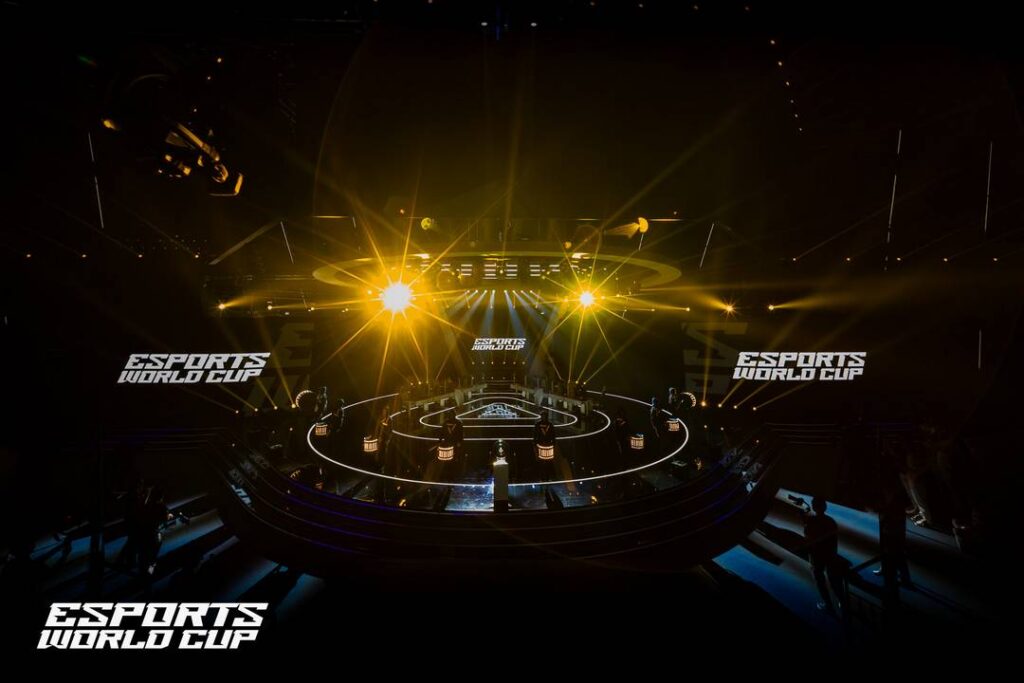
Beyond the Game: EWC’s Ripple Effect on Tourism, Economy, and Jobs
When the Esports World Cup (EWC) was first announced, most headlines zeroed in on its record-breaking prize pool and ambitious tournament structure. But behind the dazzling numbers and global fanfare lies an equally compelling story—one of economic transformation, job creation, and digital infrastructure development. Esports, it turns out, isn’t just entertainment. It’s an economic engine. And Saudi Arabia is driving it forward with intent.
Hans Jagnow of the Esports World Cup Foundation (EWCF) makes it clear: “The Esports World Cup has been a major driver of growth across tourism, the economy, and employment in Saudi Arabia.” This isn’t just hyperbole. The numbers from the EWC 2024 edition provide concrete proof.
Tourism, for instance, saw a notable 30% spike in arrivals to Riyadh, thanks in part to smart, coordinated efforts with the Saudi Tourism Authority. Special e-visas, cultural programming, and travel packages tied to the event made it easy—and attractive—for international fans to attend. What’s more, that international presence is growing rapidly. In 2024, 14% of attendees came from overseas. In 2025, just one week into ticket sales, international fans already accounted for 40%.
This shift is significant. Where traditional tourism strategies often depend on seasonal or heritage events, esports offers a yearly recurring cultural magnet that appeals to younger audiences—a demographic notoriously difficult to reach with conventional travel marketing. EWC has turned Riyadh into a pilgrimage site for global gamers.
Beyond tourism, the digital economy is booming alongside the tournament. The 2024 edition of EWC reached an online audience of 500 million viewers and generated 250 million hours of content consumed. These are numbers that rival, and in some cases exceed, traditional sports viewership. But more importantly, this level of digital traffic has prompted massive investments in Saudi Arabia’s tech infrastructure—5G networks, content delivery servers, streaming hubs—which benefit the broader economy long after the last match ends.
Perhaps the most crucial ripple effect is in job creation. The Kingdom’s gaming sector is currently valued at $1.8 billion and is projected to grow to $6.8 billion by 2030. With it comes a surge in employment—nearly 39,000 new jobs are expected in gaming and esports-related fields. These range from event logistics and IT support to content creation, analytics, and community management.
What sets this growth apart is its local orientation. Rather than importing talent, Saudi Arabia is building a domestic workforce trained to sustain and evolve its esports ecosystem. Educational programs, vocational training, and partnerships with international organizations are forming the backbone of this workforce development.
In short, EWC is not just a tournament—it’s a strategic pillar of Vision 2030’s economic diversification. It offers proof that entertainment, when paired with infrastructure and foresight, can catalyze real-world change. And as more countries begin to observe the impact of Riyadh’s esports experiment, Saudi Arabia may soon become a case study in how gaming can transform not just industries—but nations.
Facing the Esports Crisis: How EWC Aims to Build Sustainability Where Others Falter
As esports enters its second decade as a global entertainment force, a wave of uncertainty shadows its explosive growth. Iconic tournament brands are shuttering, major publishers are scaling back their competitive scenes, and even some of the most recognized esports organizations are downsizing—or disappearing altogether. To the casual observer, it might seem like the dream is fading. But for the Esports World Cup Foundation (EWCF), this moment is not a crisis—it’s a call to lead.
“Sustainability is our biggest priority,” says Hans Jagnow, and his words are more than just reassurance. They represent a strategic rethinking of what it takes to support a healthy, long-lasting global esports ecosystem.
One of the key pillars in this strategy is the sheer scale of investment. With over $70 million in total prize money for the 2025 Esports World Cup, the event sets a new benchmark for what’s possible—not only for players, but also for clubs, tournament organizers, and game publishers. These financial injections are not designed as temporary boosts, but as foundational reinforcements—giving organizations the breathing room they need to stay competitive, build structure, and plan long-term.
But the EWC isn’t just pouring money into the top of the pyramid. Through the Road to EWC qualification system, funding and support flow into regional and grassroots tournaments around the world. These smaller events don’t just serve as qualifiers—they’re ecosystem builders, sustaining local communities and independent organizers who have long struggled to survive.
This multi-tiered investment approach extends to the EWC Club Support Program, which offers $20 million in direct funding to esports teams. These funds help clubs explore new game titles, enter international tournaments, and strengthen their operations. For many teams, this backing can mean the difference between staying afloat or closing down entirely.
It’s also worth noting that the EWCF has chosen to work closely with publishers—not just as event partners, but as co-architects of long-term sustainability. “We’ve forged strategic, multi-year partnerships with publishers including Riot Games, EA, and Activision Blizzard,” Jagnow explains. These partnerships ensure that esports circuits are not only well-funded, but also well-integrated into broader game ecosystems—creating consistent calendars, clear narratives, and reliable paths for players and clubs.
In contrast to the volatility that defines many parts of the current esports industry, the EWC’s approach is deliberately long-term. It’s not chasing viral moments or seasonal trends. It’s building toward a future where esports is not a boom-and-bust phenomenon—but a stable, respected pillar of global entertainment, like football or cinema.
As other parts of the industry scale down, the EWC is scaling up—but with purpose. It sees the current turbulence not as a reason to retreat, but as an opportunity to set a new standard: one rooted in sustainability, inclusion, and shared success across all levels of the esports world.
A New Chapter for Esports Begins in Riyadh
The rise of the Esports World Cup is not merely the story of a tournament—it is the story of a nation stepping confidently into the future, guided by vision, strategy, and an unshakable belief in the power of youth, technology, and culture.
Through its record-breaking prize pools, bold infrastructure investments, and commitment to long-term sustainability, Saudi Arabia—through the EWC and the Esports World Cup Foundation—has signaled that it is not content to be a spectator in the global esports arena. It wants to shape it.
What makes this movement distinct is its clarity of purpose. Every element—from the development of local talent and job creation to reshaping international perceptions—is anchored in Vision 2030. But perhaps more remarkably, this effort resonates with the values and aspirations of the global gaming community: opportunity, inclusion, passion, and innovation.
By bridging the gap between local ambition and global relevance, the EWC has become more than just an event—it has become a catalyst for change. For players, it offers careers. For clubs, it offers stability. For fans, it offers belonging. And for Saudi Arabia, it offers a cultural bridge to the world.
Esports has always been about more than games. It’s about community, identity, and the digital pulse of a generation. In championing this space with purpose and scale, Saudi Arabia is not just investing in pixels and prize money—it is investing in people, stories, and a future where gaming is recognized as both an art form and an economic force.
And as the world watches Riyadh become a new epicenter of global esports, one thing is certain: the game is changing—and the next level begins here.
